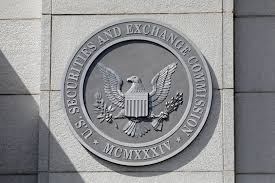SEC Finally Issues Climate Change Disclosure Rules

Daniela Melendez, an Associate at The Volkov Law Group, rejoins us for a posting on the SEC’s new climate disclosure rules. Daniela can be reached at [email protected].
After months and months of deliberations and negotiations, the SEC finally issued its final rules for climate disclosures. The Enhancement and Standardization of Climate-Related Disclosures for Investor (“the final rule”).
The SEC navigated a series of political landmines and finally adopted the new rules. Before doing so, the SEC eliminated climate disclosure requests for small businesses – Tier III companies. Despite this significant change, rule opponents on both sides – those that wanted broad rules and those that opposed even the limited rules – filed appeals and successfully stayed the implementation of the SEC’s new regulatory regime.
The final rule requires registered entities to disclose material climate-related risks, activities to mitigate such risks, information about the registrant’s board of directors’ oversight of climate-related risks and management’s role in managing material climate -related risks, and information on any climate-related goals that are material to the registrant’s business.
Why was this rule adopted? The SEC cited the importance of requiring registered companies to make climate-related disclosures, so investors can make informed decisions on a company’s stock. Furthermore, the SEC acknowledged that climate related risks may have a material impact on the net worth of a company, such as the current and longer-term financial performance. Therefore, the final rule intends to standardize the climate- related risks reports by companies.
The final rule requires the company to disclose:

- Climate-related risks that have had or are reasonably likely to have a material impact on the registrant’s business.
- Actual and potential material impacts of any identified climate-related risks
- If the registrant has taken any measures to mitigate a material climate-related risk
- Specific disclosures regarding the registrant’s activities, to mitigate a material climate-related risk.
- Any process the registrant has in place to identify, assess, and manage a material climate-related risk.
- Capitalized costs, expenses and losses related to carbon offsets and renewable energy credits or certificates.
- If the estimates and assumptions a registrant uses to produce the financial statements were materially impacted by risks and uncertainties associated with severe weather events and other natural conditions or any disclosed climate-related targets or transition plans, a qualitative description of how the development of such estimates and assumptions was impacted, disclosed in a note to the financial statements.
Thus, a registered company should assess what their climate risks are. How is the company prioritizing investments so the business can adapt to the changes? How is the company measuring its own profitability? Is it taking into consideration all the risks?
The final rule was adopted in a manner that it should be adopted gradually by companies. Thus, compliance with the final rule is dependent upon the status of the registrant as a LAF, an AF, or non-accelerated filer (NAF), smaller reporting company (SRC), or emerging growth company (EGC).

Although the final rule was long waited by different stakeholders (e.g., investors, civic organizations, among others) the day the SEC issued the final rule ten states (West Virginia, Georgia, Alabama, Alaska, Indiana, New Hampshire, Oklahoma, South Carolina, Virginia, and Wyoming) filed a petition for review in the Eleventh Circuit to challenge the agency’s authority to enact such rule. The states argue that the final rule “exceeds the agency’s statutory authority and otherwise is arbitrary, capricious, an abuse of discretion, and not in accordance with law.” On the other hand, climate change organizations have argued that the final rule does not require enough disclosures from registered companies.
Furthermore, Liberty Energy and Nomad Proppant Services in a filing to the Fifth Circuit, also argued that the SEC lacked authority to require registered companies to disclose climate related disclosures and that the rule also violated the First Amendment. In addition, the companies argued that compliance with the rule would unduly burden the companies imposing them to spend collectively $4 billion to comply with the final rule. The Fifth Circuit halted compliance with the final rule until the litigation is concluded.
In sum, despite the efforts of different stakeholders in the society and the regulator, there is opposition from other members from the society regarding this rule. Only time will tell how the courts establish precedent on this matter and decide whether to rule that registered companies are required to make climate-related disclosures. Alternatively, there is still a big question regarding how unregistered companies are dealing with climate-related risks.















